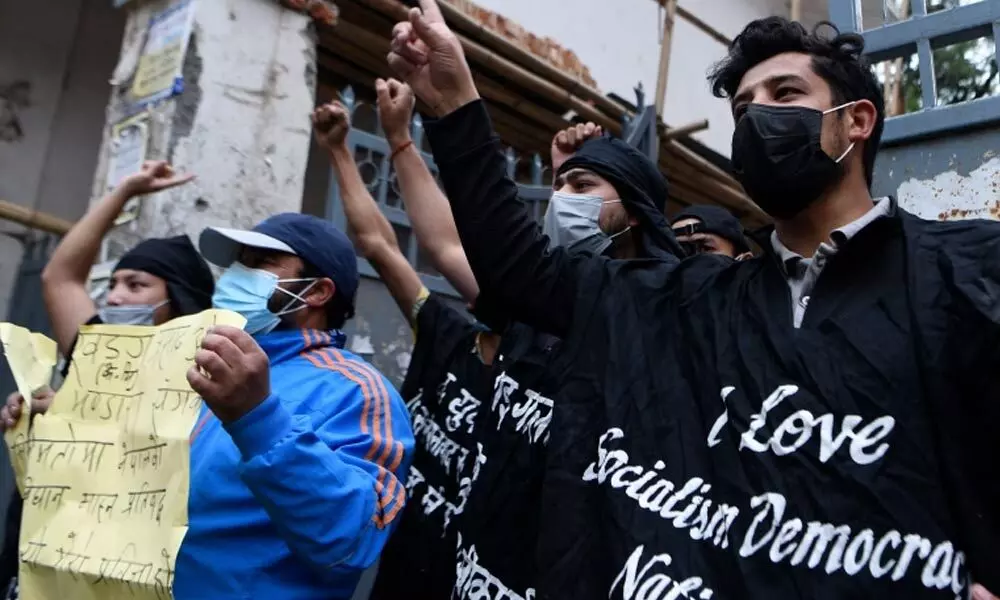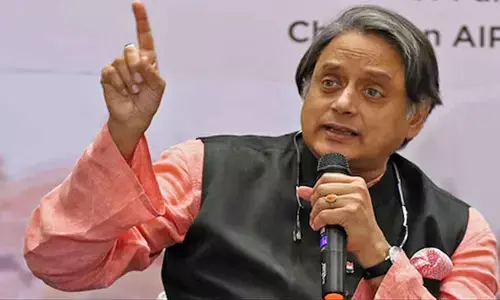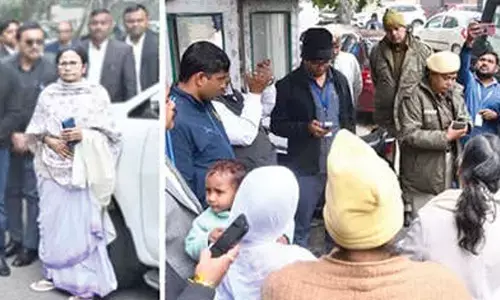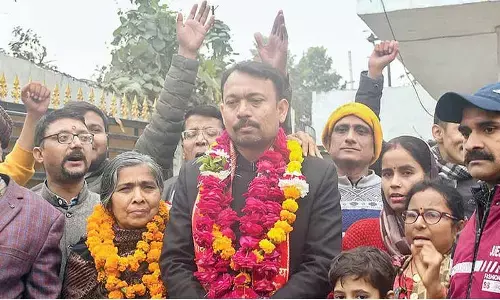A Himalayan blunder?

A Himalayan blunder?
Nepal has been pushed into a fresh political turmoil with its President dissolving the Parliament for the second time in less than six months and scheduling snap elections, prompting court challenges even as the country battles a disastrous surge in coronavirus infections
Nepal has been pushed into a fresh political turmoil with its President dissolving the Parliament for the second time in less than six months and scheduling snap elections, prompting court challenges even as the country battles a disastrous surge in coronavirus infections.
With the Supreme Court set to hear petitions against President Bidya Devi Bhandari's order on May 27, dozens of people have rallied in main Nepalese cities against what they say is a bid by the head of state to protect Prime Minister Khadga Prasad Sharma Oli's political career.
Oli, 69, had renewed calls for a fresh election after he lost a confidence vote earlier this month. Critics say Bhandari's midnight order on May 22 came when it became clear that opposition leader Sher Bahadur Deuba from the Nepali Congress party had obtained the parliamentary support required to become the South Asian nation's next prime minister. Unfortunately for Nepal, wily Oli is all set to keep the country on the brink of uncertainty eternally with the help of his benefactors in the neighbouring China's Communist Party.
Oli keeps citing India's advantage in case of the Opposition taking over to China and seeks their mediation forever it seems. The crisis is threatening renewed instability in the Himalayan country, which saw 10 changes in governments in as many years prior to the 2017 election that brought Oli and his Nepal Communist Party (NCP) to power.
The NCP, which was formed through a merger between Communist Party of Nepal – Unified Marxist Leninist (CPN-UML) and Communist Party of Nepal (Maoist Centre), – in 2018, is no longer in existence. There is also fear the turmoil could worsen Nepal's COVID-19 crisis.
Already, hospitals in the country are running out of oxygen and beds, while some regions are resorting to mass cremations as the death toll mounts. Intellectuals and civil society members are asserting that COVID times are not the right times for politics. They are demanding that the politicians' immediate focus should be on obtaining oxygen and vaccines. People are dying in the country. Dissolving the parliament and holding a fresh election will not help those battling the pandemic.
The latest crisis has its immediate roots in the fracturing of NCP. Since last year, a faction of the ruling party has been accusing the prime minister of authoritarianism and sidelining them when making decisions and appointing members to key commissions and watchdog bodies.
Rumours of a possible no-confidence vote swirled in December and Bhandari dissolved the parliament on Oli's request. The chamber was the first elected since the end of a bloody Maoist rebellion and the abolition of Nepal's 200-year-old monarchy in 2008. Bhandari's decision to dissolve the House in December immediately set off nationwide protests and several petitions at the Supreme Court. Alarmed by the unrest, Nepal's powerful northern neighbour China even sent an envoy to mediate between the two Communist Party factions.
But to no avail. In February, the Supreme Court overturned Bhandari's decision and reinstated the parliament, paving the way for a no-confidence vote against Oli. He lost, as expected, but the opposition struggled to form a government. Bhandari finally set a May 21 deadline for parties to demonstrate a majority. The vicious cycle of deceit continues in the neighbourhood, thanks to China.




